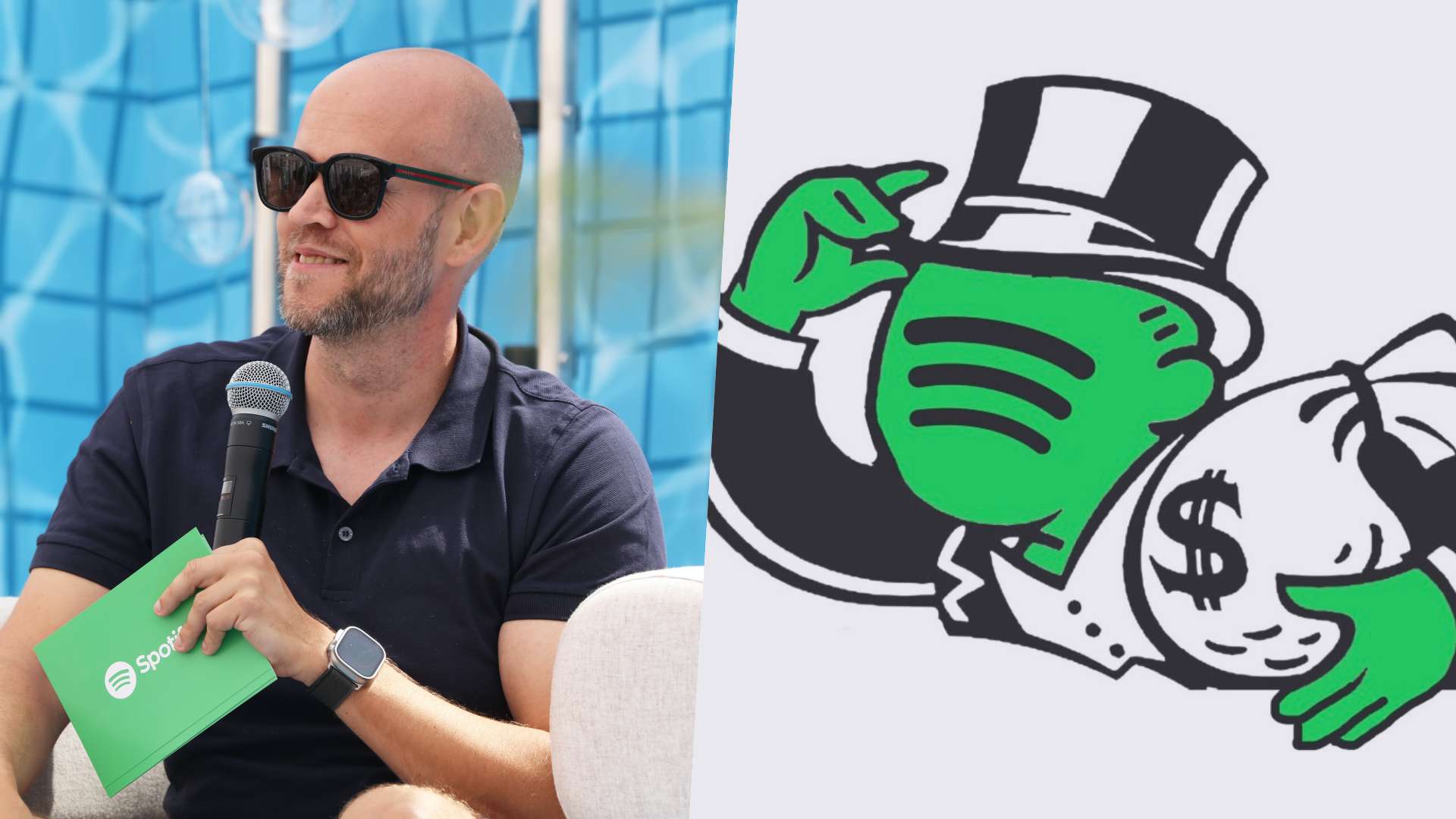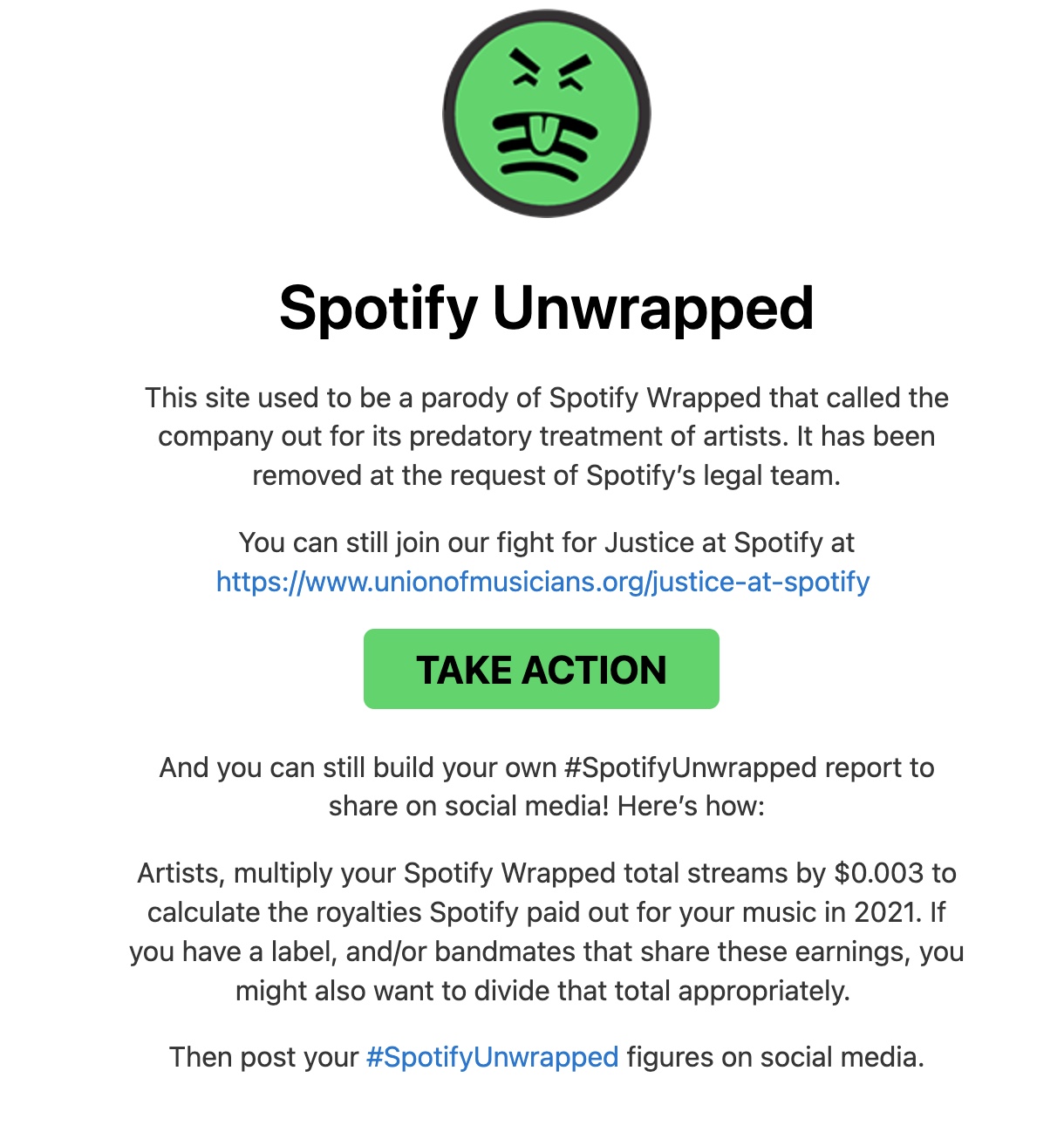What the Ek? Spotify founder is richer than any musical artist, ever
And Spotify nuke Spotify Unwrapped, the protest site that worked out just how little they’re paying artists

This opinion-based format allows a range of writers a platform to speak about the topics that are important to them. Their views are their own and do not necessarily reflect the views of MusicRadar as a whole.
In case you didn’t already know it, facts and figures put together by Forbes show that Daniel Ek, Spotify’s CEO and founder is currently worth $7.3 billion. That’s richer than their musical top three of Taylor Swift, Rihanna and Jay-Z combined. Richer, therefore, than any music artist in history.
It’s news that'll doubtless put a broad, beaming smile onto the face of any musician. Yes, whether you’re Elvis Presley, your choice of ex-Beatle or just that struggling guy or girl with a guitar looking for a lucky break, raise a [probably empty] glass to the fact that the CEO and founder of Spotify is the guy who’s really taking making money from music.
And, in their latest moves to stay on top, the legal team at Spotify have just successfully taken down Spotify Unwrapped, a site – perfectly timed to mark the release of their own Spotify Wrapped – that cleverly allowed users to enter a few details and see just how much they’ve given to Spotify and just how much of their money went to the artists they love.

The page now directs would-be viewers and supporters to the Union of Musicians’ Justice At Spotify page highlighting their desire for a flat rate of one US cent per stream (up from an average streaming royalty of $.0038) and make all deals transparent and public, so all artists are equal and ending “practices that resemble payola”.

Daniel Griffiths is a veteran journalist who has worked on some of the biggest entertainment, tech and home brands in the world. He's interviewed countless big names, and covered countless new releases in the fields of music, videogames, movies, tech, gadgets, home improvement, self build, interiors and garden design. He’s the ex-Editor of Future Music and ex-Group Editor-in-Chief of Electronic Musician, Guitarist, Guitar World, Computer Music and more. He renovates property and writes for MusicRadar.com.
Meanwhile, the man who spotted the gap and pushed the miraculous (and earth-shiftingly destructive) business of music streaming – in which we pay him first and he passes pennies to the artists that are making the music – is making more money than any musician on his platform.
So what went wrong?
It was never meant to be like this, of course. Music streaming was just another example of ‘the great leveling’, the internet taking power away from ‘the man’ and giving an opportunity to anyone talented enough to win hearts and minds. In the case of music, of course, that meant an end to ‘big labels’ controlling artists' fates and fortunes and charging music lovers £14.99 for a clunky physical CD that contained the one song that they wanted.
Certainly, after years of being pumped controlled mind-sapping pap while being charged the earth for it, followed by a piracy and peer-to-peer fuelled wild west in which all existing music would be free forever (thus killing all future music), the arrival of streaming – paying a fair price and getting the music you want while supporting the artist that made it – looked like the genius solution.
Want all the hottest music and gear news, reviews, deals, features and more, direct to your inbox? Sign up here.
But – it can be argued – it didn’t quite end up that way. Spotify, rather than sticking it to ‘the man’, instead became ‘the man’. New artists piled onto the platform and even big names such as The Beatles, Pink Floyd and Taylor Swift had to relent as the physical (and nascent digital download) audience fled town.
In the rush, somebody forgot to do the maths and make sure that they were getting their fair share on their Spotify contract. Somehow, somewhere never-disclosed deals for fractions of pennies per play were signed and sealed and became the norm.
This made sense at the time – you try doing deals with every artist on the planet and then operating servers to stream millions of tracks to millions of users – but when the world and its Mum got on board, the disparity between the amount Spotify were raking in and the measly amount they were paying out stopped making sense.
And when giants (and iPod and iTunes innovators) Apple jumped on board with Apple Music rather than offer competition, they only created a two-horse town whose landscape looks increasingly unlikely to ever erode.
So what next?
Recently Kate Nash shone a light on the problem by elegantly explaining that she is now selling photos of her bum on Only Fans in order to finance her tour.
And – equally elegantly – bands such as Benefits have taken to social media to publicly shout out where it’s all gone wrong.
11 and a half months of the year Bands: Spotify EVIL. Pittance paying arsewipes destroying OUR INDUSTRY. The utter fucks. Evil face evil face. December Bands: wow look at all these people who love us on Spotify, isn’t it all cute and groovy check out these cool graphics.December 4, 2024
Fact is, right now, if you’re a musician wanting to ‘make it big’ in 2024 and beyond you’re frankly better off cultivating your social media presence and T-shirt printing skills (while gigging 24/7) than waiting for your Spotify payout.
And if you’re a music lover who wants justice done, there’s an ever-increasing number of places you can find out more and play your part, while Spotify looks set to play whack-a-mole close behind.
Daniel Griffiths is a veteran journalist who has worked on some of the biggest entertainment, tech and home brands in the world. He's interviewed countless big names, and covered countless new releases in the fields of music, videogames, movies, tech, gadgets, home improvement, self build, interiors and garden design. He’s the ex-Editor of Future Music and ex-Group Editor-in-Chief of Electronic Musician, Guitarist, Guitar World, Computer Music and more. He renovates property and writes for MusicRadar.com.